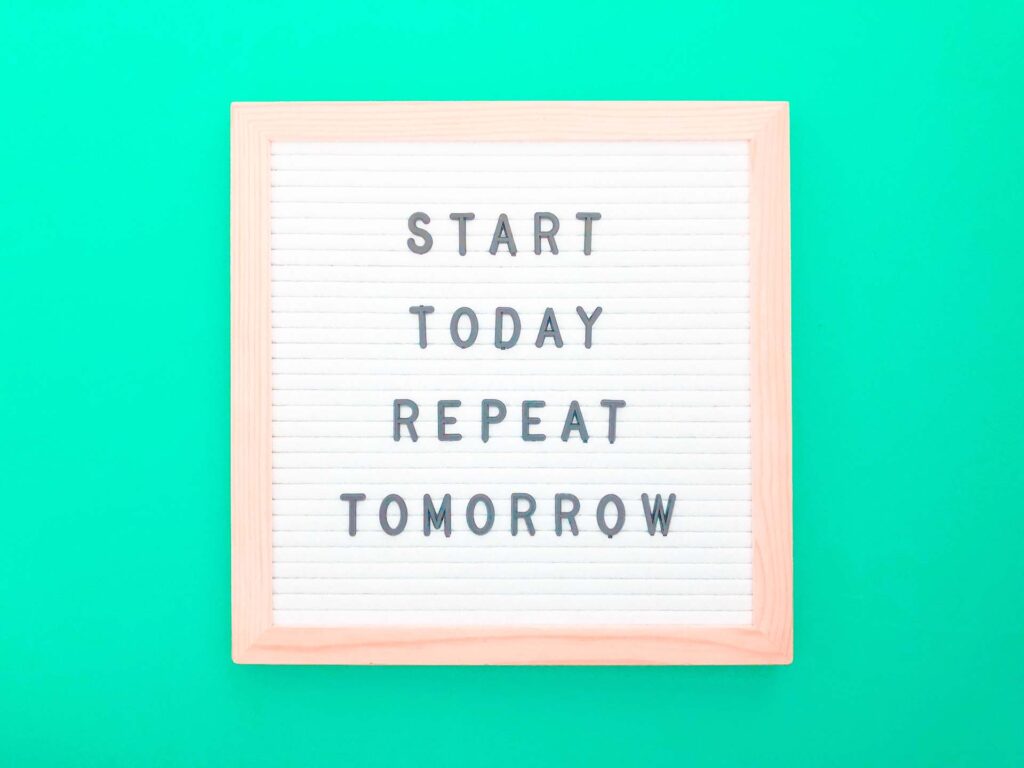Mood tracking will improve your mental health and wellness
We’ve heard it before: Mood tracking improves your mental health. But have you ever heard it explained in a way you want to understand? Read this, and then let us know in the comments if you’re sold on the idea yet.
A mood journal, or a mood tracker, is a free and easy way to improve health and well-being. Mood tracking is a great way to keep track of your daily moods. Tracking your daily moods helps you identify patterns in your emotional health and empowers you to take actionable steps toward improving it.
Mood tracking offers fresh perspectives on the effects of specific events or experiences on you. You might discover that some activities bring relaxation and calmness while others induce anxiety or stress. Equipped with this knowledge, you actively make well-informed choices. You enhance how you spend your time and energy and begin focusing on activities that foster positive emotional well-being.
Which mood tracking method is best for you?
Regularly tracking your emotions with a mood tracker benefits your overall health. Being aware of your mental state helps you identify potential triggers for your emotional responses, allowing you to avoid or manage them better. You may be able to identify patterns or trends in your emotional state. Doing that allows you to proactively manage any cause for concern, potentially saving you thousands on therapy later in life.
Related: Use Best Life as a mood tracker and see more than any other mood diary could show you.
At first, I didn’t want to start tracking my moods because I thought it would be too time-consuming. But once I got started, I realized how easy and helpful it actually was. Every day, I take a few seconds to rate my mood on a scale. Then I add a note about what might have contributed to it.

Self-reporting or Journaling
Rate your mood on a scale or use words to describe how you feel by keeping track of your moods with a diary or log.
Use a paper journal or a mobile app like Best Life, which is explicitly built to handle mood and stress tracking.
Biological monitoring
Wearables or sensors measure health data like heart rate, skin temperature, and breathing patterns to enable biological monitoring. This data is used to indicate your emotional state.
Now imagine seeing this health data and being able to overlay your mood and stress ratings, medications, and other activities. It would be very helpful to review the effectiveness of a new treatment and any related symptoms or show your healthcare provider your data over time. (That’s what you get when you use the Best Life app.)
Behavioral tracking
The data gathered from tracking activities and behaviors, such as how often you socialize or exercise, is used to gain insight into your emotional state. This is probably best done using a digital tool, so you don’t have to worry about where that paper journal was last seen!
Related: Track habits and gain insights from them using Best Life as a Habit Tracker.
Mood tracking benefits everyone
Mood tracking over time can show that you are making progress toward managing your emotions. Progress motivates and inspires you on more challenging days. Plus, a record of your current emotional health helps professionals provide more effective therapy and treatment.

Tracking your mood and stress provides a new level of mindfulness, even for an average person not trying to solve problems.
Related: Goldilocks Scale for Measuring Stress.
Increased mindfulness provides a range of benefits to an average person. These include better focus and concentration, higher emotional resilience, reduced stress, improved self-awareness, better decision-making, more creativity, better relationships, and more appreciation for life. Mindfulness also helps people become more present in the moment, gaining insight into personal thoughts and feelings.
Writing down my emotions helped me recognize patterns. I’ve noticed that my mood tends to dip down when I spend too much time doom-scrolling on social media. So now I take breaks from screens throughout the day and focus on healthier activities.
Everything to gain, nothing to lose
Using a mental health journal for mood tracking is an easy way to improve your health and well-being. You make more informed decisions by becoming more aware of how certain experiences impact emotions. You learn how to spend your time and energy to ensure that it is spent in ways that promote positive emotional health. Simultaneously, a record of your emotional state provides invaluable insight into your mental health and continually motivates you on difficult days.
Sources
Mobile apps for mood tracking: an analysis of features and user reviews
Mobile technology for mental health assessment
The promise of digital mood tracking technologies: are we heading on the right track?
Understanding People’s Use of and Perspectives on Mood-Tracking Apps
Who we are
The Live Learn Innovate Foundation is a 501(c)3 nonprofit entity that empowers software users to regain control of their personally generated health data, gain intuitive insights about their social data, learn the impact of their environment on health, and build a foundation of data analytics that empowers research, academics, and innovation in economic development.
Use cases for this secure, private data aggregation method appear everywhere, expanding to family care, community growth, agricultural planning, and many more things still unseen. Help us keep going by getting involved today.